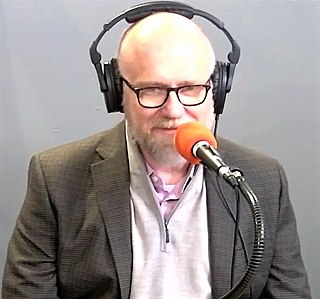A Quote by David Remnick
I think the Electoral College is an absurd 18th-century construct. But that is the law.
Related Quotes
As much as progressives hate the Electoral College - and we can argue its flaws all day long - in 2020, the Electoral College is the only game in town. There's not going to be some miracle where it's not the rule book. The winner of the Electoral College is president. Doesn't matter how many popular votes you get.
I wanted to create a believable feeling for 18th Century reality in the Perfume: The Story Of A Murderer. I didn't want this typical film feel of strange people in strange costumes, not really knowing what to do or how to move. If you put an 18th Century costume on Alan Rickman, it looks like he's been wearing it forever because he inhabits the stuff. He is a character that can really travel in time as an actor and transform into this 18th Century person with seemingly no effort.
...for two centuries supporters of the Electoral College have built their arguments on a series of faulty premises. The Electoral College is a gross violation of the cherished value of political equality. At the same time, it does not protect the interests of small states or racial minorities, nor does it serve as a bastion of federalism. Instead the Electoral College distorts the presidential campaign so that candidates ignore most small states - and many large ones - and pay little attention to minorities.
Although the stories are very present in my book, and very present in my mind, what I was most interested in was the question of why it had attracted such a following in the 18th Century. It's less mysterious that it attracted a following in the Romantic period, and in the 19th Century, but the early 18th Century when the Rationalists fell in love with it...that was mysterious. What I wanted to look at was the forms of enchantment.
There is a route to the presidency in this country, and it's called the Electoral College, and both candidates base their campaigns on winning the Electoral College, not the popular vote. And in that pursuit, Donald Trump won in a landslide or near landslide. And in that pursuit, Barack Obama and his agenda was repudiated. And not just this year. In the 2010 midterms, the 2014 midterms, and this election.
Look, science is hard, it has a reputation of being hard, and the facts are, it is hard, and that's the result of 400 years of science, right? I mean, in the 18th century, in the 18th century you could become an expert on any field of science in an afternoon by going to a library, if you could find the library, right?
































